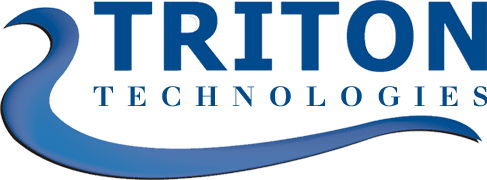In recent years, ransomware attacks have become a significant threat to businesses of all sizes and industries. These malicious attacks, which involve encrypting a victim’s data and demanding a ransom for its release, can have devastating consequences. Understanding how ransomware affects business operations and the broader implications of such attacks is crucial for developing effective defenses. This article explores the impact of ransomware attacks, highlighting the effects of ransomware on businesses and offering insights into mitigating these risks.
Understanding Ransomware
Ransomware is a type of malware designed to block access to a computer system or data, usually by encrypting the files and demanding a ransom payment to unlock them. Cybercriminals often demand payment in cryptocurrencies, making the transactions difficult to trace. The impact of ransomware can be severe, affecting not only the financial health of a business but also its reputation and operational capabilities.
How Ransomware Affects Business
1. Financial Losses
The most immediate and obvious impact of ransomware is financial loss. Businesses may face significant costs associated with:
Ransom Payments
Paying the ransom itself, which can range from a few hundred to millions of dollars, depending on the size of the business and the data’s value.
Recovery Costs
Expenses related to restoring data from backups, implementing stronger security measures, and conducting forensic analyses to prevent future attacks.
Downtime
Lost revenue due to operational disruptions, as employees are unable to access necessary systems and data.
2. Operational Disruption
Ransomware can halt business operations by rendering critical systems and data inaccessible. This disruption can last from a few hours to several weeks, depending on the severity of the attack and the business’s preparedness. The impact of such downtime includes:
Reduced Productivity
One of the most immediate and noticeable impacts of a ransomware attack is the significant reduction in productivity. When critical systems are compromised or completely taken offline, employees find themselves unable to perform their usual tasks. This halt in operations can affect every department within an organization, from administrative functions to production lines. Projects that were on schedule suddenly face delays, leading to missed deadlines and a backlog of work that can take weeks or even months to clear. The disruption not only slows down current projects but also impacts future planning and resource allocation. In industries where timing is crucial, such as manufacturing or logistics, these delays can have a ripple effect, causing downstream delays and exacerbating the overall impact on the business.
Customer Dissatisfaction
Ransomware attacks severely compromise a business’s ability to serve its customers, leading to significant customer dissatisfaction. When customer-facing systems are down, orders cannot be processed, services cannot be delivered, and support queries cannot be addressed. This inability to promptly meet customer needs can damage long-standing relationships and erode trust. Customers who rely on timely and reliable service may seek alternative providers, leading to a loss of business and potential long-term reputational damage. In today’s highly competitive market, maintaining customer satisfaction is paramount, and any disruption that impacts service delivery can have severe consequences. The frustration and inconvenience experienced by customers during a ransomware-induced outage can result in negative reviews, complaints, and a decline in customer loyalty, all of which contribute to a tarnished brand image.
3. Reputational Damage
The effects of ransomware extend beyond immediate financial and operational impacts. A ransomware attack can significantly damage a company’s reputation. This damage can manifest in several ways:
Loss of Customer Trust
One of the most severe long-term effects of a ransomware attack is the potential loss of customer trust. When customers entrust a company with their personal data, they expect it to be handled with the utmost security. A successful ransomware attack exposes vulnerabilities in the company’s cybersecurity measures, making customers question the organization’s ability to protect their sensitive information. This erosion of trust can be difficult to rebuild, as customers may feel that their personal data is not safe. The fear of data misuse or identity theft can lead to customers taking their business elsewhere. Moreover, in industries such as finance and healthcare, where data security is paramount, the loss of customer trust can have especially dire consequences, potentially leading to a significant decline in customer base and revenue.
Negative Publicity
The media coverage that often follows a ransomware attack can cause significant harm to a company’s public image. News outlets, both traditional and digital, are quick to report on cybersecurity incidents, especially those involving large corporations or sensitive data. The negative publicity can reach a wide audience, tarnishing the company’s reputation and making it difficult to attract new customers. Furthermore, the narrative around the company becomes one of vulnerability and poor cybersecurity practices, which can be difficult to counteract. The damage to the company’s image can affect future business prospects, as potential clients or partners may be wary of associating with a firm perceived as insecure. The lingering effects of such negative publicity can impede growth and market expansion efforts, as rebuilding a positive public image requires significant time and resources.
Regulatory Scrutiny
Ransomware attacks, especially those that result in data breaches, can attract increased scrutiny from regulatory bodies. Companies are required to adhere to various data protection laws and regulations, such as GDPR, HIPAA, or CCPA, depending on their industry and location. A ransomware attack that compromises personal information can lead to investigations and audits by these regulatory agencies. This heightened scrutiny can result in fines, sanctions, and mandatory corrective actions, all of which can be costly and time-consuming. Moreover, the company may need to invest in additional compliance measures to satisfy regulatory requirements, further straining financial and operational resources. The focus on regulatory compliance in the aftermath of an attack can divert attention from core business activities, affecting overall productivity and growth.
4. Legal and Compliance Issues
Businesses affected by ransomware may face legal and regulatory consequences. When an attack results in a data breach, companies must navigate a complex landscape of data protection regulations such as GDPR, CCPA, and other relevant laws. Failure to comply with these regulations can result in severe consequences, including substantial fines and penalties. Legal implications extend beyond immediate regulatory fines, potentially involving lawsuits and long-term financial burdens.
Lawsuits
In the aftermath of a ransomware attack, affected customers and partners may file lawsuits seeking damages for the data breach. These lawsuits can stem from various grievances, such as the unauthorized access and potential misuse of personal or sensitive information. Legal battles can be lengthy and costly, consuming significant company resources. The threat of litigation adds another layer of stress and complexity to the recovery process, potentially leading to settlements that further strain financial resources. The reputational damage associated with lawsuits can also deter potential customers and partners, compounding the overall impact on the business.
Regulatory Fines
Non-compliance with data protection laws due to a ransomware-induced data breach can lead to hefty financial penalties. Regulatory bodies are increasingly vigilant about enforcing data protection standards, and any lapses can attract significant fines. For instance, under GDPR, fines can reach up to 4% of a company’s annual global turnover or €20 million, whichever is higher. These penalties are designed to enforce strict adherence to data protection norms and to deter negligence. The financial burden of these fines, coupled with the cost of implementing corrective measures, can have a substantial impact on the company’s bottom line. Additionally, the process of addressing regulatory inquiries and demonstrating compliance can divert attention and resources away from core business activities, further exacerbating the disruption caused by the attack.
5. Data Loss
While some ransomware attacks result in data being restored upon payment, there is no guarantee that cybercriminals will uphold their end of the bargain. Businesses may experience permanent data loss, which can be catastrophic if backups are inadequate or outdated. The impact of data loss includes:
Intellectual Property Loss
Loss of valuable proprietary information, trade secrets, and research data.
Business Continuity Issues
Inability to recover essential data can cripple business functions and lead to long-term operational challenges.
Explore our Managed Service Offerings
Worcester’s Top Managed Service Provider
Impact of Ransomware on Specific Sectors
The impact of ransomware varies across different industries. Here are some sector-specific effects:
1. Healthcare
Ransomware attacks on healthcare organizations can be particularly devastating. These attacks can disrupt critical services, delay treatments, and compromise patient data. The impact includes:
Patient Safety Risks
Inaccessibility to medical records can hinder patient care and lead to life-threatening situations.
Regulatory Penalties
Breaches involving patient data can result in substantial fines under regulations like HIPAA.
2. Financial Services
Financial institutions are prime targets for ransomware due to the sensitive nature of the data they handle. The effects include:
Financial Theft
Ransomware attacks can be a prelude to financial theft, causing significant monetary losses.
Trust Erosion: Customers may lose trust in the institution’s ability to safeguard their financial information.
3. Manufacturing
Ransomware can disrupt production lines and supply chains in the manufacturing sector. The impact includes:
Production Halts
Inaccessible systems can stop production, leading to missed deadlines and financial losses.
Supply Chain Disruptions
Delays in manufacturing can affect the entire supply chain, impacting partners and customers.
Mitigating the Impact of Ransomware
Given the severe impact of ransomware, businesses must adopt comprehensive strategies to mitigate these risks. Here are key steps:
1. Regular Backups
Ensure that data is regularly backed up and stored securely. Regular backups can minimize data loss and facilitate quicker recovery in case of an attack. It is essential to:
Use the 3-2-1 Rule
Keep three copies of your data, on two different media, with one copy off-site.
Test Backup Restorations: Regularly test backups to ensure data can be restored effectively.
2. Employee Training
Educate employees on the dangers of ransomware and safe practices to avoid phishing attacks, which are common vectors for ransomware. Training should include:
Recognizing Suspicious Emails
Teach employees how to identify and report phishing attempts.
Safe Browsing Practices
Encourage the use of secure websites and caution against downloading unknown attachments.
3. Advanced Security Measures
Implement advanced security measures to protect against ransomware. These measures include:
Endpoint Protection
Use anti-malware software to detect and block ransomware.
Network Segmentation
Divide networks into segments to limit the spread of ransomware.
Patch Management
Regularly update software and systems to close security vulnerabilities.
4. Incident Response Plan
Develop and maintain a comprehensive incident response plan. This plan should include:
Immediate Response Procedures
Steps to isolate infected systems and prevent the spread of ransomware.
Communication Protocols
Clear guidelines on communicating with stakeholders during and after an attack.
Recovery Steps
Detailed procedures for data recovery and system restoration.
Discover our IT Solutions for Your Industry
Worcester’s Top Managed Service Provider
How Triton Technologies Can Help
Given the severe impact of ransomware attacks on businesses, partnering with a trusted cybersecurity provider is crucial for robust protection and recovery. Triton Technologies offers a comprehensive suite of Managed IT Services designed to mitigate the risks of ransomware and enhance your business’s overall cybersecurity posture. Here’s how we can help:
Advanced Threat Detection and Response
We utilize advanced threat detection and response systems to identify and neutralize ransomware threats before they can cause harm. Our advanced solutions include real-time monitoring of your network to detect unusual activities and potential threats. We also employ behavioral analysis using machine learning and AI to analyze patterns and detect ransomware based on behavior, rather than just known signatures. Additionally, we implement automated responses to isolate affected systems and prevent the spread of ransomware.
Comprehensive Backup Solutions
Effective backup solutions are critical for mitigating the impact of ransomware. We provide robust data backup and recovery services to ensure business continuity. We schedule regular backups of all critical data to secure off-site locations, regularly test and verify backups to ensure data integrity and recoverability, and ensure quick restoration of data from backups to minimize downtime and operational disruption.
Employee Training and Awareness Programs
Human error is a significant factor in many ransomware attacks. We offer comprehensive training programs to educate employees about the risks of ransomware and best practices for avoiding phishing and other attack vectors. Our services include conducting simulated phishing attacks to train employees on recognizing and responding to malicious emails, providing engaging and informative training sessions on cybersecurity awareness and safe online practices, and keeping employees informed about the latest ransomware threats and tactics used by cybercriminals.
Multi-Layered Security Solutions
We implement a multi-layered approach to cybersecurity, ensuring that all aspects of your network are protected. This includes deploying advanced anti-malware and antivirus solutions to protect individual devices, utilizing firewalls, intrusion detection systems (IDS), and intrusion prevention systems (IPS) to secure your network perimeter, and ensuring sensitive data is encrypted both in transit and at rest to protect it from unauthorized access.
Incident Response Planning and Support
A well-defined incident response plan is essential for effectively managing ransomware attacks. We help you develop and implement a comprehensive incident response strategy. We create tailored incident response plans that address the specific needs and vulnerabilities of your business, provide round-the-clock support to assist with immediate response and recovery actions during a ransomware attack, and conduct thorough forensic investigations to understand the attack vector and prevent future incidents.
Regulatory Compliance and Risk Management
Navigating the complex landscape of data protection regulations can be challenging. Here at Triton Technologies, we offer IT Compliance Management Solutions to ensure your business remains compliant with relevant laws and regulations. We conduct detailed compliance audits to identify compliance gaps and provide recommendations for improvement, perform comprehensive risk assessments to identify vulnerabilities and prioritize mitigation efforts, and assist in the creation and implementation of security policies and procedures that meet regulatory requirements.
Ransomware attacks can have a devastating impact on businesses, affecting financial stability, operational efficiency, and reputation. By partnering with Triton Technologies, you can significantly enhance your defenses against these threats. Our advanced threat detection, comprehensive backup solutions, employee training programs, multi-layered security, incident response planning, and regulatory compliance services provide a holistic approach to protecting your business from ransomware. Proactive measures and expert support from Triton Technologies ensure that you are well-prepared to prevent, detect, and respond to ransomware attacks, safeguarding your critical assets and maintaining business continuity.
To further enhance your business’s security and operational efficiency, you can explore the Managed IT and Industry-Specific solutions we offer. We primarily serve Massachusetts, Rhode Island, New York, Connecticut, the British Virgin Islands, and Dublin in Ireland. These customized solutions help meet the unique needs of various industries, ensuring that your business remains secure and efficient in today’s challenging cybersecurity landscape.
Discover Our Compliance Management Solutions
Worcester’s Leading Provider of Compliance Services



